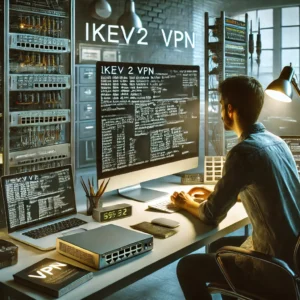Innovative Blockchain Technologies for Business: Transforming Operations & Efficiency
Blockchain technology, originally developed as the foundation for cryptocurrencies like Bitcoin, has evolved beyond its financial origins and is now a powerful tool for businesses across various industries. As companies seek to enhance transparency, security, and efficiency, blockchain presents innovative solutions that are transforming the way business operations are conducted. From supply chain management to contract automation and data security, blockchain’s decentralized, immutable nature is making it an invaluable asset to modern enterprises.
Blockchain in Supply Chain Management
One of the most promising applications of blockchain technology is in supply chain management. Traditional supply chains are often complex and involve multiple intermediaries, leading to inefficiencies, errors, and fraud. Blockchain addresses these challenges by providing a decentralized ledger that records every transaction in the supply chain, ensuring transparency, traceability, and security.
Businesses can use blockchain to track goods from their origin to their final destination. For instance, companies in the food industry can ensure that the products they sell have been sourced ethically and safely, with verifiable records accessible to all stakeholders. This ability to monitor the entire journey of a product is crucial for preventing fraud, reducing waste, and ensuring compliance with regulatory standards.
Additionally, blockchain’s transparency reduces the chances of counterfeit goods entering the market, which is especially important in sectors like luxury goods, pharmaceuticals, and electronics. Smart contracts can automate payment processes upon delivery or completion of certain milestones, further streamlining operations.
Smart Contracts and Automation
Smart contracts are self-executing contracts with the terms directly written into code. They automatically execute actions when predefined conditions are met. These contracts eliminate the need for intermediaries, reduce the possibility of human error, and ensure compliance by automating the process.
For businesses, smart contracts can significantly cut down on administrative costs and time. They can be used in a variety of situations, such as in insurance claim processing, real estate transactions, and legal agreements. For example, in the real estate industry, once a buyer fulfills the terms of a contract, such as transferring funds, the ownership of the property could be automatically transferred to the buyer, eliminating paperwork and reducing the risk of disputes.
By automating these processes, businesses can improve efficiency, reduce costs, and mitigate the risks associated with human intervention.
Blockchain for Data Security and Privacy
Data security has become a top priority for businesses in today’s digital age, with cyber threats constantly evolving. Blockchain offers a solution by providing a decentralized network where data is stored across multiple nodes, making it nearly impossible to hack or tamper with.
For sensitive business data, such as customer information or intellectual property, blockchain can create a tamper-proof record of transactions, ensuring that no one can alter or forge records. Additionally, blockchain’s encryption and privacy features allow for the selective sharing of information, giving businesses more control over what is disclosed and to whom.
In industries like healthcare, where data privacy is a critical concern, blockchain can enable secure sharing of patient data among healthcare providers without the risk of unauthorized access or breaches. By ensuring the integrity and confidentiality of sensitive data, blockchain technologies can improve trust between businesses and their customers.
Decentralized Finance (DeFi) for Business Transactions
Decentralized Finance (DeFi) is an innovative concept built on blockchain technology that allows businesses to conduct financial transactions without relying on traditional financial institutions. DeFi platforms offer businesses access to lending, borrowing, trading, and other financial services through decentralized protocols, removing the need for banks and other intermediaries.
For businesses, DeFi offers benefits like faster transactions, reduced fees, and greater transparency. It can also enable international payments to be settled quickly and efficiently without the need for a bank to facilitate the process, which can take days and involve significant fees.
By embracing DeFi, businesses can streamline their financial operations, improve liquidity management, and access new opportunities for growth and investment.
Blockchain for Identity Verification
Another innovative application of blockchain in business is identity verification. As businesses increasingly interact with customers, suppliers, and partners across the globe, verifying the identity of individuals and organizations becomes more complex. Traditional systems, such as passwords, PINs, and identity documents, are often vulnerable to fraud and data breaches.
Blockchain provides a secure and efficient solution for identity management. Blockchain-based identity verification systems allow users to store their personal data on a decentralized platform that only they can access. Businesses can then verify the identity of individuals using cryptographic methods, eliminating the need for physical documentation and reducing the risk of identity theft.
This technology has wide-ranging applications, from simplifying customer onboarding in financial services to ensuring compliance with Know Your Customer (KYC) and Anti-Money Laundering (AML) regulations. In sectors like healthcare, it can also streamline patient identity verification, improving the efficiency of care delivery.
Tokenization of Assets
Tokenization is the process of converting real-world assets into digital tokens on a blockchain. This innovation allows businesses to unlock liquidity by turning physical assets, such as real estate, art, or even intellectual property, into tradable digital tokens. Tokenization enables fractional ownership, allowing businesses and investors to trade smaller shares of assets rather than the entire item, opening up new avenues for investment.
For example, tokenizing real estate properties can enable small investors to own a fraction of a property and share in the rental income or appreciation. Similarly, tokenization in the art market allows investors to buy a portion of high-value artworks, making it more accessible.
This democratization of assets can attract a new class of investors and provide businesses with an alternative means of raising capital.
Blockchain for Sustainability and Environmental Impact
Blockchain can also play a pivotal role in promoting sustainability and reducing the environmental impact of business operations. In industries like energy and manufacturing, blockchain can track and verify the sources of energy or raw materials to ensure they are sustainably sourced.
For instance, blockchain can help track carbon credits and verify claims of carbon neutrality, ensuring that businesses are held accountable for their environmental impact. Additionally, blockchain can be used in renewable energy markets to facilitate peer-to-peer energy trading, allowing consumers and businesses to buy and sell excess energy generated from solar panels or wind turbines.
This transparency and accountability can help businesses build trust with consumers and stakeholders who are increasingly concerned with sustainability and environmental responsibility.
Blockchain technologies offer businesses innovative solutions that enhance transparency, security, efficiency, and trust. Whether in supply chain management, smart contracts, data security, decentralized finance, identity verification, or asset tokenization, blockchain has the potential to revolutionize how companies operate and interact with customers, suppliers, and partners.
As blockchain continues to evolve and mature, businesses that adopt these technologies early will likely gain a competitive edge in the market. While challenges like scalability, regulatory concerns, and public adoption remain, the growing integration of blockchain across industries demonstrates its transformative power and potential to shape the future of business.
Frequently Asked Questions (FAQs) about Innovative Blockchain Technologies for Business
1. What is blockchain technology and how can it benefit businesses?
Blockchain technology is a decentralized and distributed digital ledger system that records transactions across multiple computers in a secure, transparent, and immutable way. For businesses, blockchain offers benefits such as improved transparency, enhanced data security, reduced operational costs, and faster transactions. It can streamline processes like supply chain management, payments, and contract enforcement, increasing efficiency and trust between parties.
2. How do smart contracts work and why are they useful for businesses?
Smart contracts are self-executing contracts where the terms are written into code. They automatically execute actions when predefined conditions are met. For example, a payment can be automatically processed once goods are delivered. Businesses benefit from smart contracts by reducing the need for intermediaries, minimizing human error, ensuring timely execution of agreements, and saving on administrative costs.
3. Can blockchain improve supply chain management?
Yes, blockchain can greatly improve supply chain management by providing a transparent and tamper-proof ledger that tracks goods from production to delivery. It enhances traceability, reduces fraud, prevents counterfeiting, and ensures compliance with regulatory standards. Blockchain also helps automate payment processing through smart contracts, speeding up transactions and reducing delays in the supply chain.
4. What is Decentralized Finance (DeFi) and how can businesses use it?
Decentralized Finance (DeFi) refers to financial services built on blockchain that eliminate the need for traditional intermediaries like banks. Businesses can use DeFi platforms for functions such as lending, borrowing, trading, and payments. DeFi enables faster, cheaper, and more transparent transactions, with the added benefit of access to global markets without relying on traditional banking systems.
5. How secure is blockchain technology for businesses?
Blockchain is considered highly secure due to its decentralized nature and cryptographic features. Once a transaction is recorded on the blockchain, it is nearly impossible to alter or tamper with, as each block is linked to the previous one. Additionally, blockchain’s transparency allows businesses to track transactions and ensure data integrity. However, like any technology, security depends on how it is implemented, so businesses must ensure they follow best practices for security and governance when adopting blockchain solutions.














Post Comment